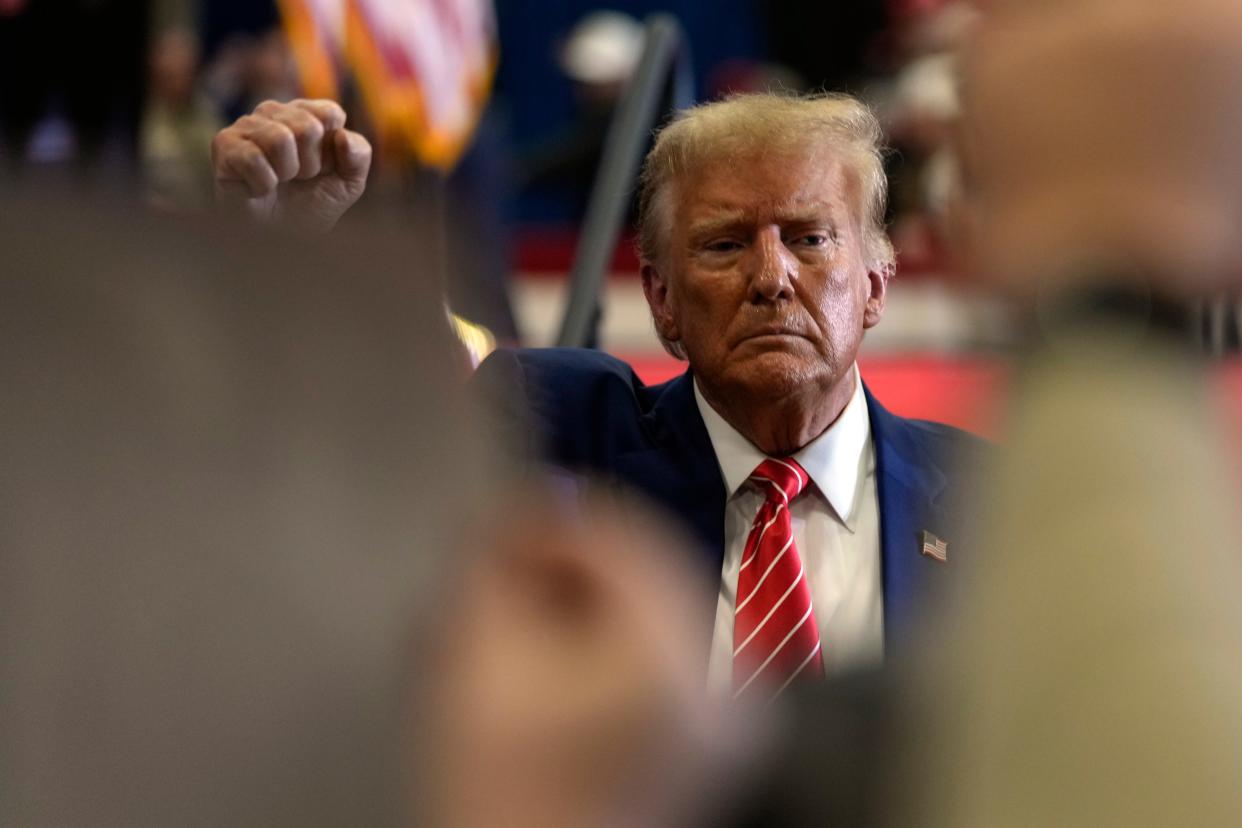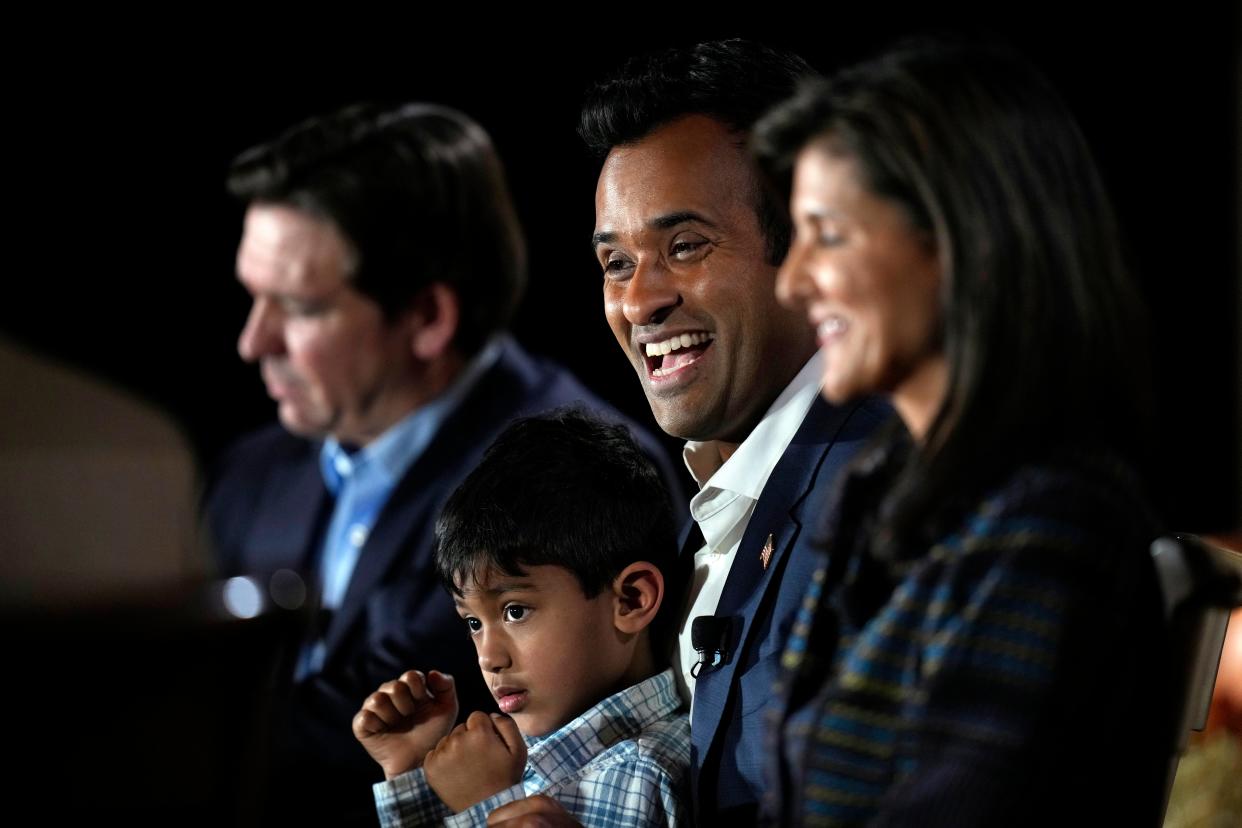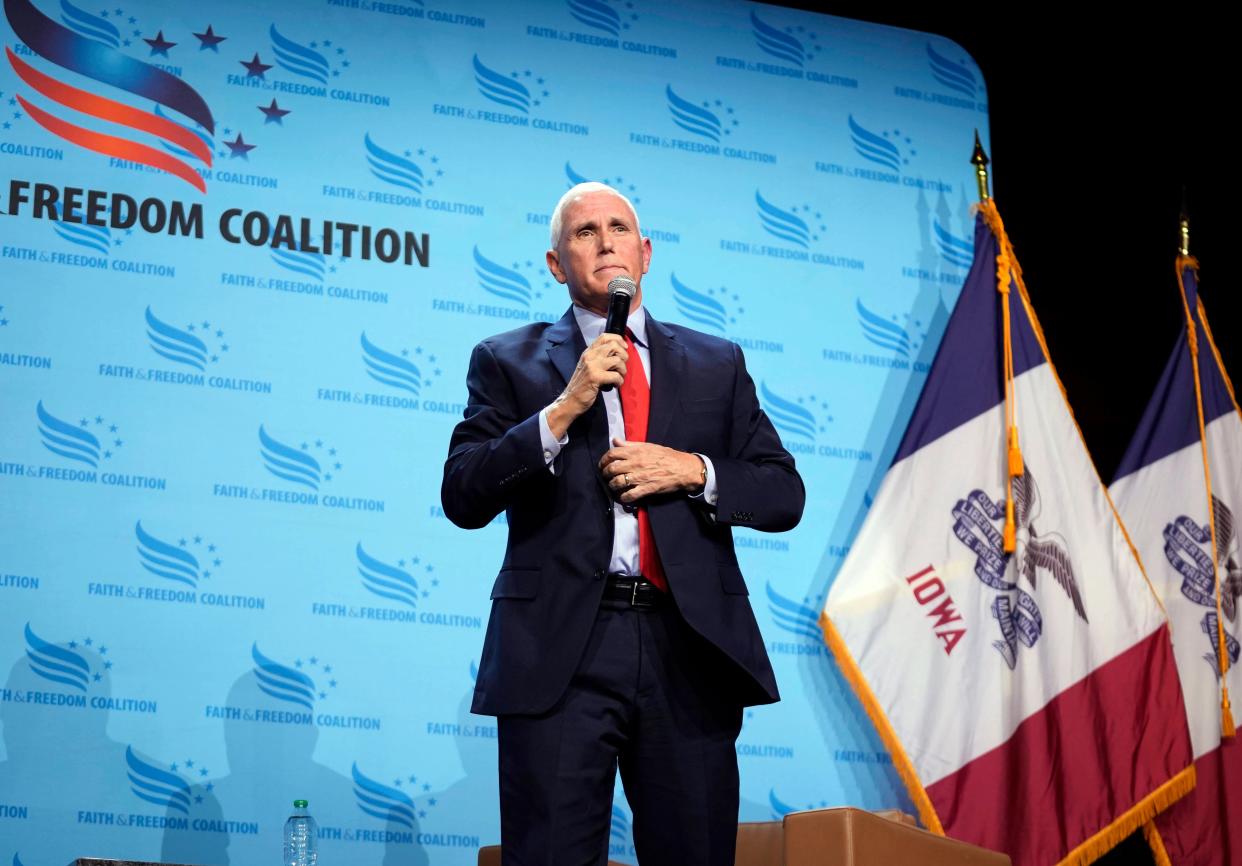Trump spurns traditional caucus campaigning as he builds expectations for a big Iowa win
To hear Donald Trump tell it, the 2024 Iowa Caucuses were over before they had even begun.
When the former president arrived in the Des Moines metro in June for his second Iowa campaign trip of the caucus cycle, one day after Florida Gov. Ron DeSantis formally launched his own candidacy, he was frank in his assessment of the race:
"We'd have to do some really bad things to lose at this point," he said.
And so Trump confidently set upon the path toward his third Republican Party nomination through the first-in-the-nation caucus state, waging an unprecedented presidential campaign as he faces 91 criminal charges across four cases stemming from his private business ventures, his mishandling of classified documents and his attempt to overturn the 2020 presidential election.
In the coming months, he is set to appear in court increasingly often between campaign events.
More: Here's when the Iowa Caucuses start, how they work, who can participate, where to go
In his visits to population centers across Iowa, surrounded at all times by adoring supporters clad in red MAGA hats and custom Trump gear, the former president has lambasted challengers such as Florida Gov. Ron DeSantis and former U.N. Ambassador Nikki Haley; continued to falsely assert that he won the 2020 election; attacked the prosecutors and charges brought against him; and assured Iowans that their support — which he was confident he would receive — would deliver a first step back to the White House.
“America’s not great right now," Trump said in a January visit to Clinton. "We’re going to make it great. We’re going to make it greater than ever before, but right now we’re a laughingstock of the world. This election is our last chance to save America, and that begins in Iowa. It begins right here."

Trump's 2024 campaign: Spurning Iowa leaders while defending his administration and policies
Trump and his campaign effectively turned the traditional Iowa Caucus playbook on its head, continuing to aim to define the Republican Party and election cycle on his own terms.
He spurned some of the most prominent conservative leaders in the state, attacking Gov. Kim Reynolds for remaining neutral early in the race and then endorsing DeSantis, soon followed by Family Leader CEO Bob Vander Plaats. Trump dismissed the endorsements as inconsequential, even as he attacked Reynolds for disloyalty.
He largely shrugged off the retail politicking made famous by the caucuses, making just 22 scheduled public visits the entire cycle, according to the Des Moines Register's Candidate Tracker. Almost all of them were campaign-organized rallies in population centers, while his challengers shook hands at Pizza Ranches and visited as many counties as possible.
At all but a few "cattle call" events, where prominent organizations or elected officials invite the entire slate of candidates, Trump was absent.

And pressed on key conservative issues like abortion, Trump toed the line on policy in ways that frustrated evangelical leaders, calling a six-week abortion ban like the one passed in Iowa a "horrible thing" and insisting that Republicans who took a hard-line approach to the issue would lose them elections.
None of it appeared to matter.
Throughout the entire cycle, Trump held massive polling leads over his challengers, peaking at a 32-point lead with 51% of first-choice support in December's Iowa Poll.
And his final mark of 48% support in an Iowa Poll released Saturday, with a 28-point lead, is the highest margin of leading support for a Republican in the Iowa Poll's history of caucus surveys. He holds a plurality of support from every demographic group included in the poll.
How a large field of challengers gradually shrunk under Trump's lead
Trump's challengers sought to chip away his unprecedented Iowa lead in a variety of ways, few of which proved effective.
After months of largely avoiding direct criticism of the former president, DeSantis attacked him from the right, arguing he was unsuitably conservative on a wide range of issues. Haley warned voters of the "chaos" that followed him wherever he went and served as a distraction from key conservative goals.
The former president responded by calling them both disloyal, attacking their record on issues like social service funding and ethanol, and lobbing insults like "DeSanctimonious" and "Birdbrain" while taking credit for their previous rise in political capital.
Other GOP hopefuls fell well short of caucus night, dropping out of the race as Trump maintained his coalition of support.
His former running mate, Mike Pence, who a Des Moines Register Political Soapbox attendee accused of "treason" at the Iowa State Fair for his refusal to deny certification of the 2020 election results on Jan. 6, 2021, dropped out after drying up on money and support.

U.S. Sen. Tim Scott's more optimistic approach failed to tap into an evangelical community still supportive of Trump. And former New Jersey Gov. Chris Christie, who largely ignored Iowa for New Hampshire, failed to resonate while lobbing the most explicit attacks on Trump among the field.
Both DeSantis and Haley, by the time Iowans set out to caucus, had established networks of organizers and volunteers throughout the state. A super PAC backing DeSantis, Never Back Down, sent paid staffers and volunteers to knock hundreds of thousands of doors, and Americans for Prosperity, the Koch-financed political group, fanned out across the state in a late push for Haley after endorsing her.
But the former president's operation matched their efforts with a robust organizing network of their own, a far cry from a scattershot 2016 Iowa Caucus campaign that ended in second place behind U.S. Sen. Ted Cruz. An army of volunteer "caucus captains" led voter outreach, bolstered through the rallies that doubled as opportunities to gather caucusgoer contact information.
David Jackson is a national political correspondent for USA TODAY.
Galen Bacharier covers politics for the Register. Reach him at gbacharier@registermedia.com or (573) 219-7440, and follow him on Twitter @galenbacharier.
This article originally appeared on Des Moines Register: Donald Trump is expecting a huge Iowa Caucus victory. Will he get it?






